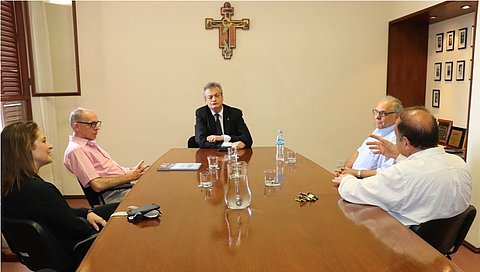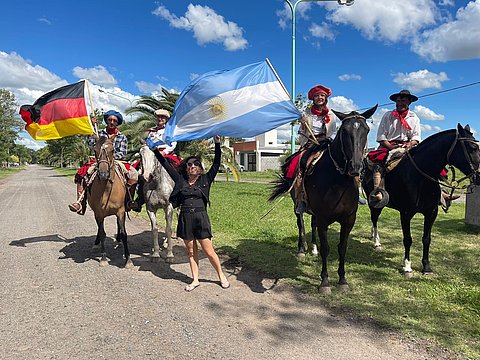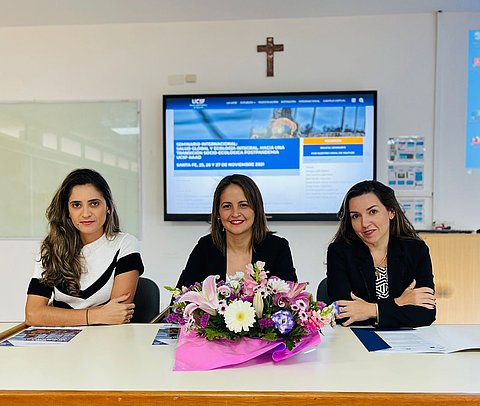The Rector of the Catholic University of Santa Fe (UCSF), Martín De Palma M.A. opened the seminar together with Thomas Krüggeler on November 25th andemphasized the well-established cooperation between our Catholic institutions of the tertiary education sector. At this point it is important to emphasize that both UCSF and the Provincial Government of Santa Fe provided significant financial support for the event.
The opening lecture was given by Mexican economist and environmental sociologist Enrique Leff, who called for a radical rethinking of economic action and social coexistence. In his view,the encyclical Laudato si’ is a wake-up call on the part of the Pope and thus a decisive contribution of the Catholic Church to the discourse on the future of the planet. In conclusion, the scientist, who is very well known in Latin America, thanked the participants for the fruitful debate and assured them that he had gained hope from the strong commitment of this group young scientists.
The lawyer Alejandro Bonet (Santa Fe) placed Laudato Si’ in the broader context of Catholic social teaching in his presentation, preparing the way for three rounds of discussion that dominated the second day of the seminar. In the roundtable “Ecology & Health: Towards an Eco-Social Way of Life,” the panelists took as their starting point the increasingly common thesis that human health is intimately related to the health of the ecosystems that surround us. Therefore, they discussed questions such as: What challenges does international health care face today in putting a holistic ecological approach into practice? Participants in the second panel (“Ecology & Politics: Towards an Integral Ecology?”), stated that the narrative of an integral ecology promoted by Pope Francis in his encyclical has not been without influence on policy instruments and discourses, on government norms and regulations, and on the practice and agenda of various civil society organizations. However, great efforts are still needed to translate the content of an integral ecology into political practice.
The third round of discussions, “Ecology & Nutrition: Agriculture, Food and Institutionalization,” brought out clear differences of opinion among the discussants. The close connection between food crises (hunger, malnutrition, obesity etc.) and the consequences of industrial agriculture based on monocultures and meat production was undisputed. Differences between health scientists and biologists on one side and agronomists on the other side in areas such as organic farming, genetic modification, etc. were clearly evident in the ideas on how to develop sustainable agricultural production in the future. These debates, some of which expressed the differences between university theory and agricultural practice, enriched the content level of the seminar. Several expert alumni and many KAAD-fellows from Brazil, Guatemala and Columbia participated via virtual platforms in all three conversations.
The Heidelberg-based health scientist PD Dr. Olaf Horstick, who has been providing expert support to our Salud Global aumni-group for 6 years, concluded the seminar with his presentation on “Global Health in the Context of Epidemics”. The presentation of historical examples, combined with extensive statistical background data, made the lecture an exciting experience for the audience. Horstick emphasized the dangers posed by epidemics in a globalized world and the special responsibility that the industrialized north of the world has for global health.






